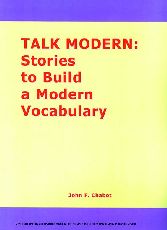Suchen und Finden
"SPAM (p. 9)
If you have a mailbox outside your home chances are you have received junk mail. Junk mail includes any advertising flyers, coupons or products that are delivered to your house without you asking for them. If you have an e-mail account chances are you have received the computerized-version of junk mail. It's called spam! E-mail has changed the way people communicate. It has also changed the way businesses market their products and services to consumers.
Generally, spam is the word used to describe any commercial e-mail delivered to consumers via e-mail without their permission. Spam is usually advertising for some product or service sent to mass mailing lists or newsgroups. People with public e-mail addresses often receive hundreds of spam messages every day. Many of these spam messages manage to sneak by computer filters designed specifically to block spam. Who are the people behind this massive wave of spam? Where does it all come from? More importantly, is there any way to stop businesses from jamming public e-mail accounts with spam?
There are no simple answers to these questions. Consumers often wind up on spam lists without even knowing it. This could happen to anyone who supplies their actual screen name or e-mail address when entering a chat room or newsgroup. Smart spammers have created search engines that cruise the World Wide Web looking for e-mail addresses. These programs extract the names and e-mail addresses from the Web automatically. The data retrieved is then used by spammers to create massive mailing lists. These mailing lists are often sold to companies hoping to direct mail to consumers using the Internet.
Spam filters are the most common technology used to combat spam. However, even the best spam filters fail to eliminate all unwanted e-mail. Many countries are considering legislation that would establish national ""do not spam"" lists similar to lists designed to block telemarketers. Another option being considered is the elimination of e-mail as it is used now. Rather than simply sending an e-mail, people would first be required to fill in an on-line form before sending electronic messages. This extra step could help eliminate the millions of unwanted spam messages that clog the Internet every day!
HYBRID ENGINES
Drivers in North America may finally stop thinking that bigger is better when it comes to their automobiles. The days of big cars and gas-guzzling SUVs may be coming to an end. For years, environmental groups have been pressuring governments to order automakers to make more fuel-efficient cars. The skyrocketing price for a gallon of gasoline may be the thing that ultimately changes the way North Americans think of their cars. The simple fact is a car that burns twice as much gas to go a mile will cost twice as much to run. The less fuelefficient car will also generate twice the pollution. Decreasing fuel consumption is one of the surest ways to decrease pollution from automobiles. Automakers have responded to the environmentalists and drivers by creating a new type of car: the hybrid car. "
Alle Preise verstehen sich inklusive der gesetzlichen MwSt.








